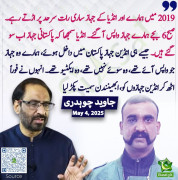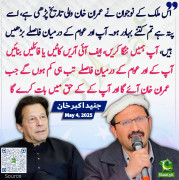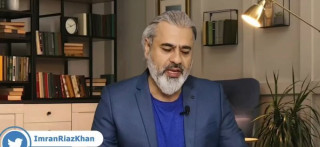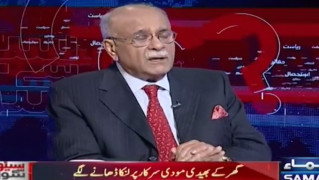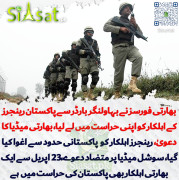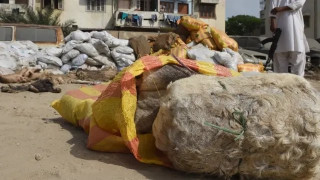Re: Common Misconception and Muslim Unity(Intellectual Appro
karachilover said:
Theek hai kai bohat si bateen achi hain lekin ye kehna kai ye bhi sahe hai or wo bhi sahe hai is ka kia matlab howa, koi ek cheez to ghalat or sahe ho gi.
Brother, We should understand that my right opinion could be wrong in your opinion or vice versa. As long as both of us are not violating the rules of Islam, We should respect the views of each other.
I hope that the following rivaayah from Sahih Bukhari will be helpful to understand the matter.
once, Nabi (sallAllaahu alaihi wasallam) instructed the Sahaabah (radhiAllaahu anhum) on the occasion of arriving at the tribe of Banu Quraiza:
None of you should read his Asr Salaat except at (arrival at) Banu Quraiza. It so
transpired that the Sahaabah (radhiAllaahu anhum) were delayed in reaching there and the time of Asr Salaat was
about to terminate. The Sahaabah (radhiAllaahu anhum) made mashwera as to what they should do. The mashwera
resulted in two groups. The one group opinioned that since Nabi (sallAllaahu alaihi wasallam) gave a clear -cut
instruction that Asr Salaat only be read at arrival at Banu Quraiza, how is it possible for them to perform their
Salaat now on the way. Therefore, even though the Salaat may become Qadha, they felt that it was necessary to
follow the instructions of Rasulullaah (sallAllaahu alaihi wasallam). The second group felt that the import and
intention of Nabi?s (sallAllaahu alaihi wasallam) instruction was that they reach Banu Quraidha before the expiry
of Asr Salaat time, and upon reaching there they were to perform the Asr Salaat. Therefore, they felt that since the
time for sunset was drawing close, and they would not reach there before sunset, there was no question about
making the Asr Salaat Qadha. They felt that it did not mean that if they were delayed in reaching there then they
had to make the Asr Salaat Qadha. They felt that this would worsen their shortcomings.
Nevertheless, the first group decided to make the Salaat Qadha, thereby fulfilling the explicit instructions of Nabi
(sallAllaahu alaihi wasallam), whilst the second group alighted from their conveyances and performed the Salaat
opining that they were fulfilling and carrying out the intention the desire of Nabi (sallAllaahu alaihi wasallam).
When news of this incident reached Rasulullaah (sallAllaahu alaihi wasallam), he did not rebuke either of the two
groups (SAHIH BUKHARI Book #59, Hadith #445).
In fact, our beloved Hadhrat Mohammad (Salallaho Alaihi Wasallam) regarded both of them as being correct, since both of them had completed and carried out his intention and desire.
Sawal ye hai kai baqool un kai or sab kai DROOD SHAREEF achi cheez hai jo bhi jahan bhi jab bhi chahee parehe sawab mile ga .............Hum 4 rakat Farz parhte hain is main so martaba ATTIYAT parhte hain dosre martaba main ATTIYAT kai bad DROOD SHAREEF parhte hain .Agar en ki bat man leen to 2 rakat kai bad ATTIYAT kai bad DROOD SHAREEF parh sakte hain agar parh sakte hian to kun nahi parhte or agar nahi parh sakte to phir wo sara falsafa reet ki dewar hai jo Molvi Ishaq ne farmaya hai?
Before Fardh namaz, we can read Durood Shareef or other Wazaif as many times as we want but during Fardh Namaz we don`t have this flexibility in ruling of Islam.
I would suggest you to study the Fiqh of the establishment of rules about Fard, Wajib, Mustahab, and Mubah which will InshAllah eliminate many doubts regarding many issues.
May Allah unite the Ummah.

